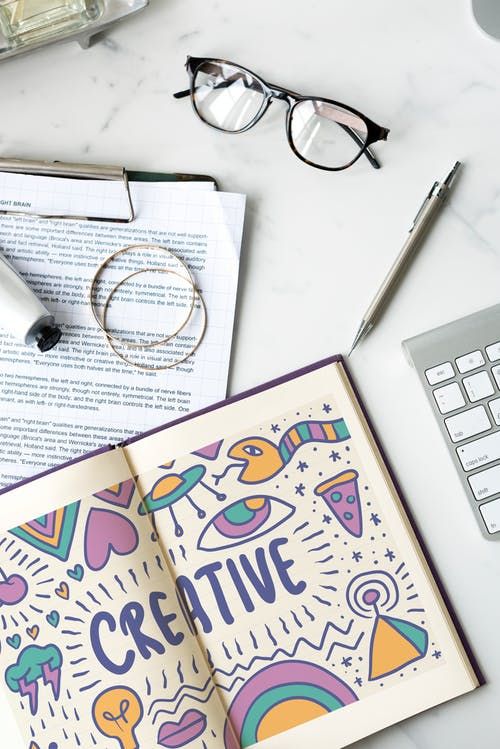Creativity Is A Process, Not An Event
May 21, 2019 • 741 views
Creativity allows us to express ourselves. The creation of something new involves not only creative leaps but also cognition, reasoning and expertise. At the best, there is a broad agreement that creativity involves a human process that leads to a creative and innovative product. Much of the contention about defining the creative process results from the central place given to a significant event-the so-called “creative leap”, a sudden insight that is almost immediately recognised as the key to create something new.
Creativity and innovation are constantly pushing us forward in terms of all the fields including technology, science etc. Creativity and ideas don’t come on command, they seem to spring up when we least expect it – like a rod of lightning bending our mind in unexpected directions, showing us the way.
Let us now take an example an discuss it further. Have someone other than one of the most influential scientists in history thought of falling an apple from the tree. Yes, I’m taking about Sir Isaac Newton. He was once scrolling through the garden when he stuck with a flash of creative brilliance that would change the world. While standing under the shade of an apple tree, Sir Issac Netwon saw an apple fall to the ground. “Why should the apple always descend perpendicularly to the ground”, he wondered. Assuredly, he thought there must a drawing power in the matter. And thus, concept of gravity was born.
It is a symbol of inspired genius that fills your brain during those “light bulb moments” when creative conditions are just right. Newton is not the only one to wrestle with great ideas of the years. Creative thinking is a process for all of us.
Anyone can be creative

There’s a belief out there that creativity is innate- either you have it or you don’t. That’s partially true. Creativity is a fundamentally human trait, but it’s intrinsic to everyone. We all are capable of coming up with new and wonderful ideas and solving problems. Creative is a thinking skill. The most often you approach problems flexibly and imaginatively, the easier it becomes to develop original ideas. So, whether creative director or financial controller, everyone has the equal ability to be creative.
Creative thinking
Creativity is a process, not an event. Creative thinking requires our brain to make connections between seemingly unrelated ideas. We generally accept that creative thinking involves both an affective or generative aspect and a cognition or evaluation aspect, which involves the association of seemingly random, disparate ideas as potential solutions.
But thinking, as an inclusive neurological function, does not itself distinguish between cognitive and affective aspects. But creativity is fundamentally product-centric, the creator constantly makes evaluative and selective judgements, and at times compromises.
How to be more creative
Assuming that you are willing to work hard of facing your inner fears and working through failure, here are few practice strategies for becoming more creative.
Write more:The longer I am stuck with my writing schedules, the more I realised that I had to write about a dozen average ideas before I uncovered a brilliant one. By producing a volume of work, I created a larger surface area for a creative spark to hit me.
Broaden your knowlegde: One of the most creative strategies is to force yourself to think and write about seemingly disparate ideas and topics.
Sleep longer: A study from the University of Pennsylvania found, sleep debt is cumulative and if you get 6 hours of sleep per night for two weeks straight, your mental and physical performance declines t the same level as if you had stayed awake for 48 hours straight. Like all cognitive functions, creative thinking is significantly impaired by sleep deprivation.
